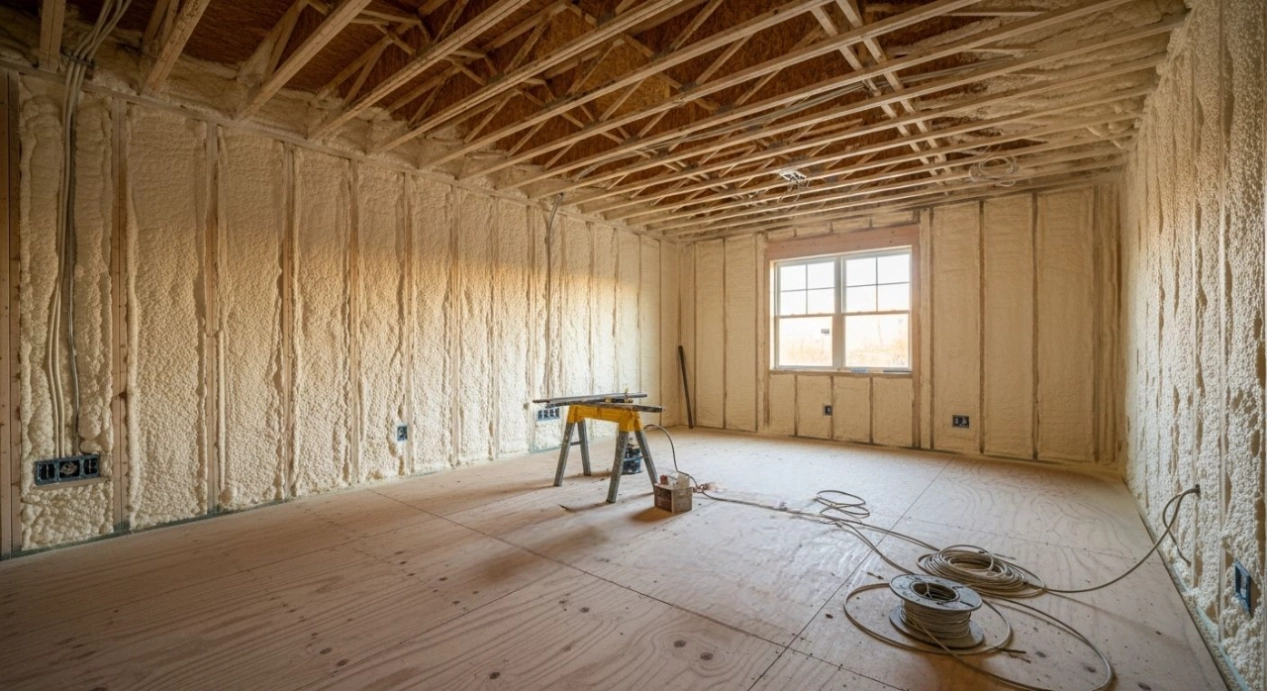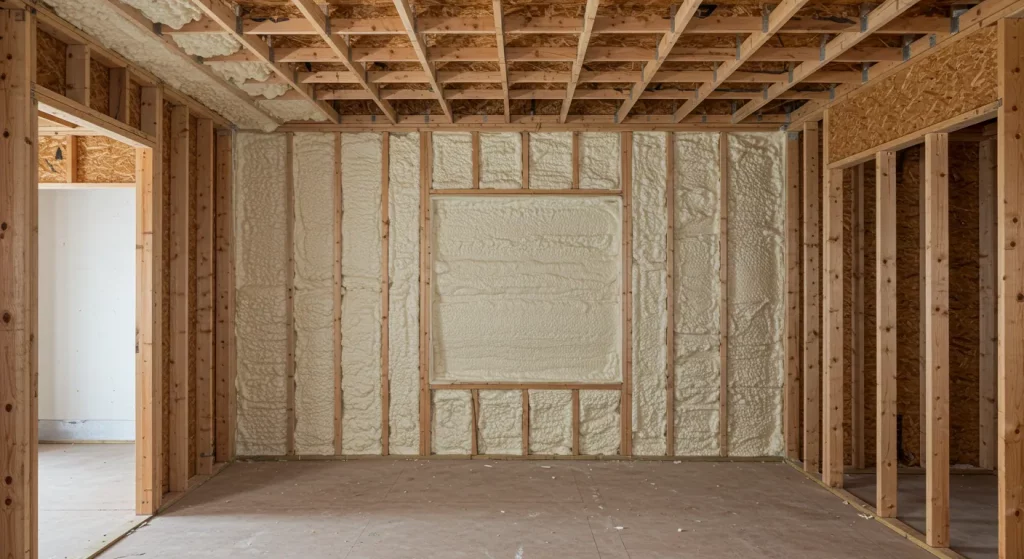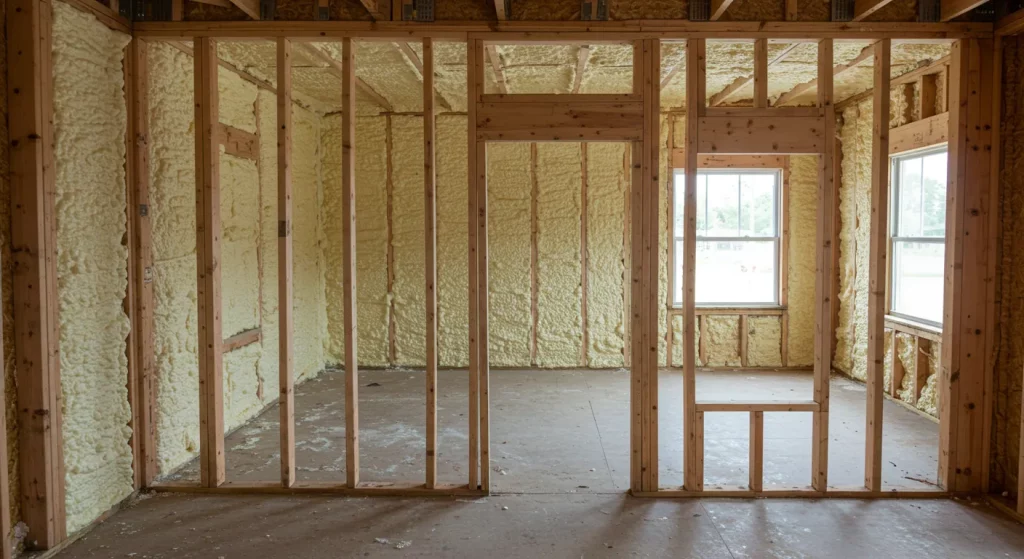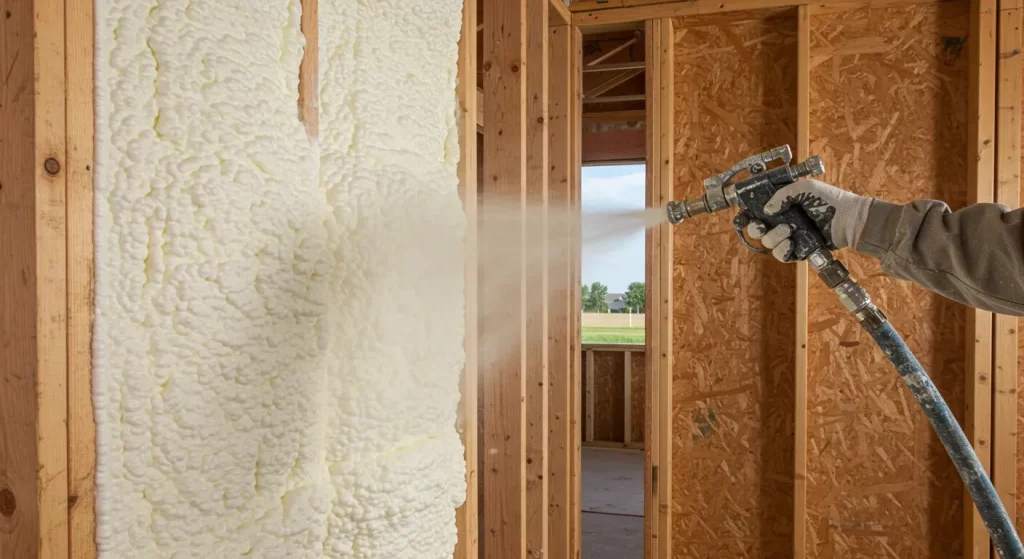Spray foam insulation maintains stable indoor temperatures in Burlington homes by sealing gaps and reducing air leakage. This single step cuts energy loss by up to 40% according to the U.S. Department of Energy, making heating and cooling systems work less. The result is reduced utility demand and more consistent comfort.
Dense, moisture-resistant foam also limits seasonal drafts common in Burlington’s mixed climate of hot summers and cold winters. That added barrier helps minimize condensation and mold risk, further preserving a home’s structural integrity.
Why spray foam works better than traditional insulation
Spray foam outperforms fiberglass and cellulose because it blocks both conductive and convective heat transfer. Traditional materials reduce conductive heat but still allow air flow. Spray foam expands to form an airtight seal around framing, wiring, and ductwork.
Thermal and air sealing comparison
| Insulation Type | Air Sealing Capability | R-Value per Inch | Durability | Moisture Resistance |
|---|---|---|---|---|
| Closed-cell spray foam | Excellent | R-6 to R-7 | 30+ years | High |
| Open-cell spray foam | Very good | R-3.5 to R-4 | 20+ years | Moderate |
| Fiberglass batt | Poor | R-2.2 to R-3.8 | 10–15 years | Low |
| Cellulose | Fair | R-3.2 to R-3.8 | 15–20 years | Low |
Bonus tip: In Burlington’s climate, closed-cell spray foam is recommended for basements and attics where moisture intrusion risk is higher.
Technical performance details
| Specification | Closed-Cell Foam | Open-Cell Foam |
|---|---|---|
| Density | ~2 lb/ft³ | ~0.5 lb/ft³ |
| Vapor Barrier | Yes | No |
| Sound Absorption | Moderate | High |
| Compressive Strength | High | Low |
| Typical Application | Basements, roofs, crawl spaces | Interior walls, ceilings |
Burlington climate considerations
Burlington’s climate includes humid summers and freezing winters. Insulation that manages both air and moisture is critical. Spray foam reduces cold air infiltration during January lows averaging 28°F, and resists humidity swings in July when temperatures reach 88°F on average (NOAA Climate Data, 2023). This dual role preserves energy efficiency year-round.
Bonus tip: Applying spray foam along rim joists can prevent one of the biggest hidden sources of energy loss in older Burlington homes.
Factors to weigh before choosing spray foam
- Moisture control needs: Closed-cell spray foam is better for basements and roofs, while open-cell works well for interior walls.
- Sound reduction: Open-cell is better suited where noise reduction is important.
- Existing ventilation: Sealed homes may require additional ventilation planning.
- Building code requirements: Local codes in Burlington may require ignition barriers or fire-resistant coatings over spray foam.
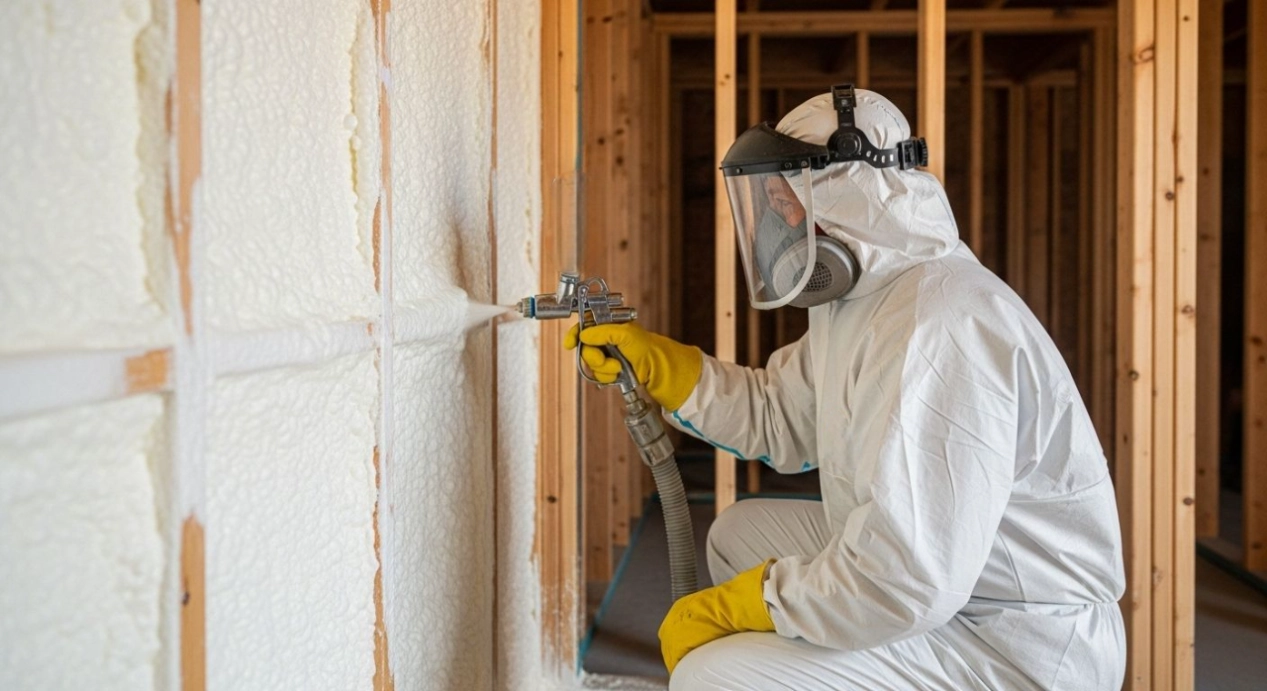
Services related to home energy efficiency
Raleigh Excel Spray Foam Insulation offers:
- Closed-cell spray foam insulation: Dense insulation designed to control moisture and maximize thermal performance.
- Open-cell spray foam insulation: Lighter foam that provides effective air sealing with added sound absorption.
- Roof insulation: Spray foam applied directly to roof decks to prevent heat loss and protect against condensation.
- Basement insulation: Closed-cell spray foam designed to resist ground moisture and stabilize basement temperatures.
Common Questions homeowners often ask before deciding
Does spray foam damage roof shingles?
No, proper installation prevents heat buildup that could affect shingles. Spray foam stabilizes attic temperatures, extending roof life.
Can spray foam be installed over old insulation?
Yes, but best practice is removing deteriorated insulation to inspect for moisture or pest issues first.
Is spray foam safe indoors?
Once cured, spray foam is inert and non-toxic. Professional installation ensures proper ventilation during application.
How long does spray foam last?
Closed-cell and open-cell foam can last 20–30 years without major performance loss when properly installed.
Key takeaways
Spray foam insulation delivers airtight sealing, moisture resistance, and long service life that keep Burlington homes efficient in both hot and cold seasons. Choosing the right type for each area of the home ensures maximum comfort and durability.
Contact for expert guidance
For more information on insulation suited to Burlington homes, contact Raleigh Excel Spray Foam Insulation at [email protected] or call (919) 301-9435.
FAQS
How should spray foam be maintained?
Spray foam requires little maintenance beyond regular visual inspections for water leaks or physical damage.
Can spray foam insulation settle or shrink?
High-quality spray foam maintains form. Shrinking is rare if applied at correct temperatures and densities.
Does spray foam increase home resale value?
Yes, energy-efficient upgrades often attract buyers. Insulated homes may sell faster and with fewer concessions (National Association of Realtors, 2023).
Will spray foam reduce HVAC system wear?
Yes, by reducing energy loss, HVAC equipment runs fewer cycles, extending system lifespan.
Can spray foam help with ice dams?
Yes, by maintaining uniform roof deck temperatures, spray foam reduces conditions that cause ice dam formation.




